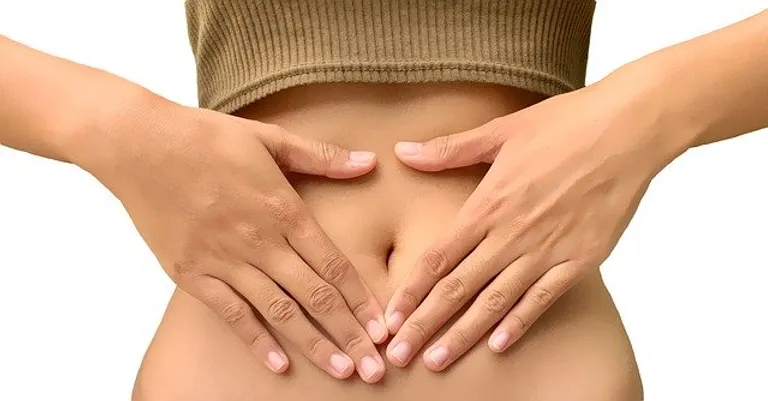Image by Alicia Harper from Pixabay
I am sure you have heard about probiotics. Many people are taking them, but why? Why is taking probiotics trendy now, and why are they so important?
To be able to understand why probiotics are so beneficial for our health we have to talk about the gut microbiome or microbiota first. Have you ever heard about it and how it influences our health? The gut microbiome is so important that some scientists have even called it a human organ since it contributes to many body functions and plays a very important role in health and even disease.
So What is the Gut Microbiota?
The gut microbiota are trillions of microorganisms that habitat the human gastrointestinal tract (GIT) and it is composed of bacterias, viruses, fungi, and parasites; but mainly bacterias. There are ten times more bacterial cells in our body than our own human cells and there is over 100 times more bacterial genetic content (called the microbiome) than human genetic content in our body.
These microorganisms are found along the lumen and in the mucosa of the GI tract and they normally do not penetrate the bowel wall. They are more abundant in the lower part of the GI tract because the large intestine conditions are more favorable for their survival. Gut microbiota’s composition can vary due to environmental factors, such as diet, and possibly also by our own genetics.
The presence of gut microbiota is believed to begin at birth. After birth, the GI tract is rapidly colonized, and by age 2.5 years, it resembles the adult microbiota (mostly Firmicutes and Bacteroidetes). In adults, the composition is relatively stable but it can be affected by life events such as illness, antibiotic treatment, and changes in diet.
Why is Gut Microbiota so Important?
- It protects us against the colonization of harmful pathogens. This happens because the gut microbiota competes for nutrients with harmful bacteria, produces antimicrobial agents, helps maintain the gut barrier integrity, and helps modulate our immune response.
- Helps digestion. Most dietary fibers cannot be digested or absorbed in the small intestine. When they enter the large intestine, gut microbiota breaks down and ferments them producing small chain fatty acids (SCFA): butyrate, propionate, and acetate. SCFA are sources of energy for colon cells and they have anti-inflammatory and anti-cancer properties, among others.
- Participates in vitamin production. The gut microbiota is responsible for the production of several essential vitamins, including B vitamins, such as cobalamin (vitamin B12), folic acid, biotin, thiamine (vitamin B1), riboflavin (vitamin B2), niacin (vitamin B3), pyridoxine (vitamin B6), and pantothenic acid (vitamin B5), as well as vitamin K.
- The Gut-brain axis. Yes, there is communication between our gut and the brain! It has been demonstrated that gut microbes can communicate with the central nervous system in what is called the brain-gut-microbiome axis. Some types of gut bacteria can produce brain neurotransmitters such as GABA and serotonin which are associated with mood regulation. Anxiety and depression have been associated with GABA system dysfunction. Serotonin (5-HT) performs regulatory functions in the gut and other organ systems and has an important role in mood regulation as well.
- Immunity. Interaction between gut microbiota and our gut cells promotes the immune system.
What is Dysbiosis? And What are the Consequences of it?
Dysbiosis is when the gut microbiome is persistently out of balance. When the gut microbiome is out of balance, over time one of the consequences is increased gut permeability because the gut barrier is compromised (also known as “leaky gut”). Increased permeability means that now toxins and food particles can pass through it reaching the bloodstream. Our immune system detects them as foreign and attacks them creating inflammation. Some of these toxins look so similar to our own cells that the immune system can get confused and can attack our own tissues leading to autoimmune diseases. The presence of toxins in the bloodstream can also lead to insulin resistance and ultimately, obesity and diabetes.
Dysbiosis can manifest as bloating and gas, allergies, brain fog, joint aches, depression, or anxiety. Diseases linked to dysbiosis are the following:
- Inflammatory bowel disease (IBD)
- Irritable bowel syndrome (IBS)
- Celiac disease
- Autoimmune diseases
- Cancer
- Depression, Anxiety
- Other psychiatric disorders
- Allergy
- Asthma
- Heart disease
- Metabolic syndrome
- Type 2 diabetes
- Obesity
What Affects Negatively our Microbiota Causing Dysbiosis?
- Western diet or the Standard American Diet (SAD) which is low in fruit and vegetables; high in animal protein, saturated fats, refined grains, sugar, salt, alcohol and fructose corn syrup
- Antibiotics
- Non-antibiotic drugs like proton pump inhibitors (medications that decrease stomach acid production such as omeprazole)
- Illness
- Injury
- Hormonal changes
- Chronic stress
- Genetics – gut microbiota composition is also influenced by our genetics, which opposed to the factors mentioned before, we can not control.
What Can We Do About it? Factors That Have a Positive Effect on Microbiota:
1. Diet. The Mediterranean diet has been proven to be good for our microbiota. The Mediterranean diet consists of:
- high intake of non-refined grains
- legumes
- a large diversity of fresh vegetables and fruits daily
- dairy only a few times per week
- fish, seafood, eggs, and white meat a few times per week
- red meat a few times per month
- minimal alcohol
- Use of olive oil
2. The use of probiotics, prebiotics, and synbiotics. More on them in Part 2 of this article.
3. Fermented foods such as sauerkraut, kimchi, kombucha, kefir.
4. Good quality sleep.
5. Meditation.
6. Exercise.
7. Dietary fiber
Long term good dietary habits, adequate fruits and vegetables, dietary fiber, healthy fats, and more plant-derived proteins are important for maintaining a healthy microbiota.
Always remember that when we eat, we are not only feeding ourselves, we are also feeding our gut microbiota and part of our health depends on them. Diet is very important but it’s not the only important factor for maintaining good gut health. Don’t forget how important it is to exercise, relax, meditate, play, love, and enjoy life!
Acupuncture is an effective treatment for digestive issues and it also stimulates the parasympathetic nervous system, a part of the nervous system that allows us to digest, rest, relax, and repair. By strengthening your digestion and your gut microbiota you are giving your body extra protection against infections which is much needed now during the Pandemia. If you have any questions about the gut microbiota or how acupuncture can help your digestion, microbiota and therefore your immune system, don’t hesitate to contact me. I am always here to answer your questions!
References
- https://www.sciencedirect.com/science/article/pii/S1198743X14609587
- https://www.ncbi.nlm.nih.gov/pmc/articles/PMC6520976/
- https://www.ncbi.nlm.nih.gov/pmc/articles/PMC6683087/
- https://www.ncbi.nlm.nih.gov/books/NBK7670/
- https://www.ncbi.nlm.nih.gov/pmc/articles/PMC6302746/
- https://www.ncbi.nlm.nih.gov/pmc/articles/PMC3983973/
- https://www.ncbi.nlm.nih.gov/pmc/articles/PMC5385025/
- https://www.ncbi.nlm.nih.gov/pmc/articles/PMC4315779/pdf/MEHD-26-26191.pdf
- https://microbiomejournal.biomedcentral.com/articles/10.1186/s40168-019-068





0 Comments